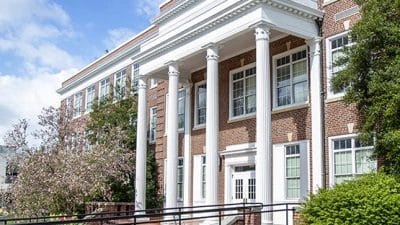
The legislation is being filed in response to reports that liberal activist groups obtained student directories from 18 state institutions and used that information for political purposes.
“Students have a clear and rightful expectation to privacy, and the idea that colleges and universities routinely release personal information to outside third party groups is shocking and frightening,” said Delegate Yost. “Students should not have to jump through hoops to protect their own personal and private information. And that information should most certainly not be given freely to political groups seeking to exploit student’s personal information.”
Speaking about the legislation Delegate Wilt said, “I was disappointed to see that student information was so easily distributed to multiple organizations without their direct knowledge. Obviously, we need stronger and clearer protections to guard the personal information of our students. Every political candidate and group that exploited this information should immediately stop, apologize to students across the Commonwealth, and endorse this commonsense bill.”
Under Family Educational Rights and Privacy Act of 1974 (FERPA), schools may release student directory information, including cell phone numbers, unless the student actively opts out of such release. Virginia’s Freedom of Information Act may also allow higher educational institutions to exempt this information from release as a “scholastic record.” The legislation to be introduced by Yost and Wilt will statutorily prohibit the release of student directory data to third party groups unless the student expressly authorizes such release in writing, similar to how health privacy laws operate.
“This is a reasonable and commonsense step to protect our students and their personal, private information,” said House Education Committee Chairman Steve Landes (R-Augusta). “Information like this can easily be used to locate an individual, hack into an account, or even steal an identity, and students should know that their information is being protected, not given out to anyone who asks for it.”
“The idea is simple: students shouldn’t have to take extra steps to protect their information; the college should have to take extra steps to release it,” said Speaker-designee Kirk Cox (R-Colonial Heights). “This legislation will have the full support of House leadership next year.”










